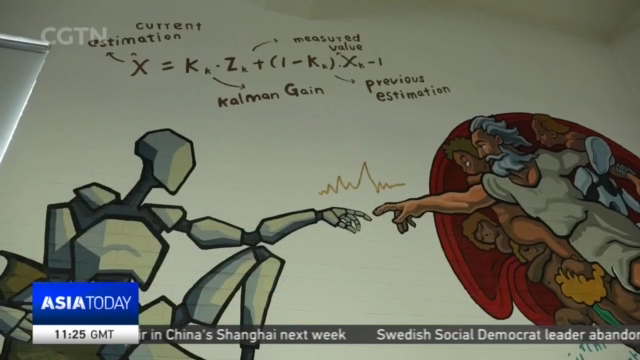
19:56, 29-Oct-2018
Living in the Future: VR technology being used for medical rehabilitation
Updated
19:26, 01-Nov-2018
04:04

Virtual reality technology has long been associated with video games, film production and the entertainment industry. But that's now changing. One hospital in the southeastern Chinese city of Fuzhou, is using VR as part of medical rehab treatments. Can the new tech outperform traditional treatment methods? CGTN's Omar Khan went to find out.
As much as it looks like a futuristic experience, this virtual reality exercise is now the norm for these patients here.
Having suffered a stroke or dealing with a disability, patients are now able to have an interactive and engaging form of rehab.
That's all thanks to the First Affiliated Hospital of Fujian Medical University, who've partnered with engineering firm Noitom, to make this unique method, a reality.
So why the shift to the world of virtual reality?
Traditionally, rehab comes down to one-on-one sessions.
But with a shortage of specialized doctors, many people aren't getting the training they need.
The hospital and tech firm believe VR technology can solve this, by enabling doctors to treat more patients at the same time.
NI GUOXIN, DIR. OF REHABILITATION MEDICINE FIRST AFFILIATED HOSPITAL OF FUJIAN MEDICAL UNIVERSITY "As a supplement to traditional rehab, VR can have an enhancing effect, as it has three characteristics, which are immersion, interaction and imagination. When patients use the VR system, they can be immersed in a virtual world and interact with objects, pushing them to use their imagination in this environment, and ultimately enhance their treatment."
One of the main programs focuses on cognitive training.
Patients can row a boat, play golf or even walk through a mansion, where they're prompted with tasks in a kitchen.
Programs are also tailor made and include a scoring system.
REHAB PATIENT FIRST AFFILIATED HOSPITAL OF FUJIAN MEDICAL UNIVERSITY "I feel relaxed when I play the rowing game and the golf game in the VR system."
REHAB PATIENT FIRST AFFILIATED HOSPITAL OF FUJIAN MEDICAL UNIVERSITY "It's much more interesting. It feels like I'm playing games at some moments. It's a way to spend my time and I feel it's good for my recovery."
Noitom's technology started being used here just three months ago, so none of the 100 or so patients have completed the program. Yet the biggest question remains to be how effective this type of rehab will truly be.
NI GUOXIN, DIR. OF REHABILITATION MEDICINE FIRST AFFILIATED HOSPITAL OF FUJIAN MEDICAL UNIVERSITY "Firstly, VR allows people to easily get immersed in the activity due to it being a form of entertainment. Secondly, its interaction makes patients feel more engaged with their rehab, which is different from traditional methods. Third, patients are able to get some feedback when they finish a VR task, and can even compete with each other during the group training activity. This gives them more enthusiasm to take part."
Up in Beijing at Norton's headquarters, the company remains convinced that the development of VR technology in the medical industry, will eventually lead the way.( The vision for the future will be to have programs such as the one in Fuzhou, being rolled out across the nation, in an accessible way.
DR. LIU HAOYANG NOITOM CEO & CO-FOUNDER "Rehab is not for the money, it's that people need this technology. In rehab, doctors still use their eyes to measure the patients' motion, and then tell what you should do, but it's not vey scientific. If there is a way to take a very precise measurement of a human's motion, then we can do a much better job in rehab. I believe in five years, we will see a lot of application in medical work using VR."
For now, patients in Fuzhou will use both methods of rehab as they continue with their treatment. As for Doctor Ni, he'll push forward with his plans to expand VR therapy, and ultimately create a nationwide network with hopes that all patients can have a more fulfilling journey in their road to recovery. Omar Khan, CGTN, Beijing.

SITEMAP
Copyright © 2018 CGTN. Beijing ICP prepared NO.16065310-3
Copyright © 2018 CGTN. Beijing ICP prepared NO.16065310-3